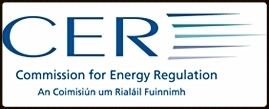The Commission for Energy Regulation (CER) is to spend as much as €824,700 on consultancy services for a project that it has not yet given the official go-ahead.
The National Smart Meter Programme is a €1bn project to install electricity and gas smart meters in all homes and most businesses by 2020.
Although the CER says the meters, similar to the one pictured, will allow consumers to avoid unnecessary consumption and cost by providing up to date information on their energy usage, the value of the project has already come into question.
The results of a cost-benefit analysis commissioned by the CER, which is overseeing the planned rollout of the programme to over 2m households, were found to be "marginally negative". However, an earlier report was largely positive about the project's potential impact.
Despite this the CER now plans to spend as much as €824,700 on consultancy services "provide technical expertise to CER" as it looks to move into the third stage of the project.
This stage is focused on the design and development of the meters as well as "consumer engagement programme".
Although the organisation said that it could not disclose the value of the contract due to commercial sensitivities, a notice posted online awarding the contract to UK firm energy consultancy firm DNV KEMA said that of the three bids submitted, €824,700 was the highest while €594,000 was the lowest.
A spokesman for the CER said the contract was awarded on a "draw down" basis, and will run until late February 2017.
He added: "The maximum requirement for the period of the contract is 450 days, drawn down as required.
"The CER does not guarantee that all 450 days will be drawn down, it will only be drawn as needed and so the final cost [which is] subject to the cap, is currently uncertain."
The CER also plans to run another cost benefit analysis, which is scheduled for the third quarter of 2016, before giving the project the final green light.
The body said that the results will "drive a Go/No-Go Decision on the nature of the rollout of Smart Meters". The CER spokesman said: "Given the scale of investment required to deliver smart metering, a thorough and robust analysis is required to substantiate any rollout decision. As the project moves through the phases of High Level Design and Detailed Design it is good practice to review costs and benefits."
The CER is Ireland’s independent energy regulator with a range of economic, customer and safety functions. The CER is also the economic regulator of Ireland’s public water system.
The CER initially established the National Smart Metering Programme in late 2007. Estimates from the CER suggest that smart metering could require an investment of up to €1bn.
A previous cost-benefit analysis carried out by PwC, published last year, found the project could result in a net loss of €54m, although it said the findings should be viewed as "broadly neutral" given the project's scale.
Under the traditional meter system, many homeowners only get an estimate of how much electricity they are purchasing, but the CER claims they would get an accurate reading with the new meters. The visual display on the meter is intended to provide "real-time" information on the amount being consumed.
The rollout of electricity and gas smart meters is currently scheduled to commence in 2018, though the CER notes that this "depends on many factors".
According to its most recent annual report, the CER spent €2.5m on consultancy services on the Smart Metering Programme in 2013.



